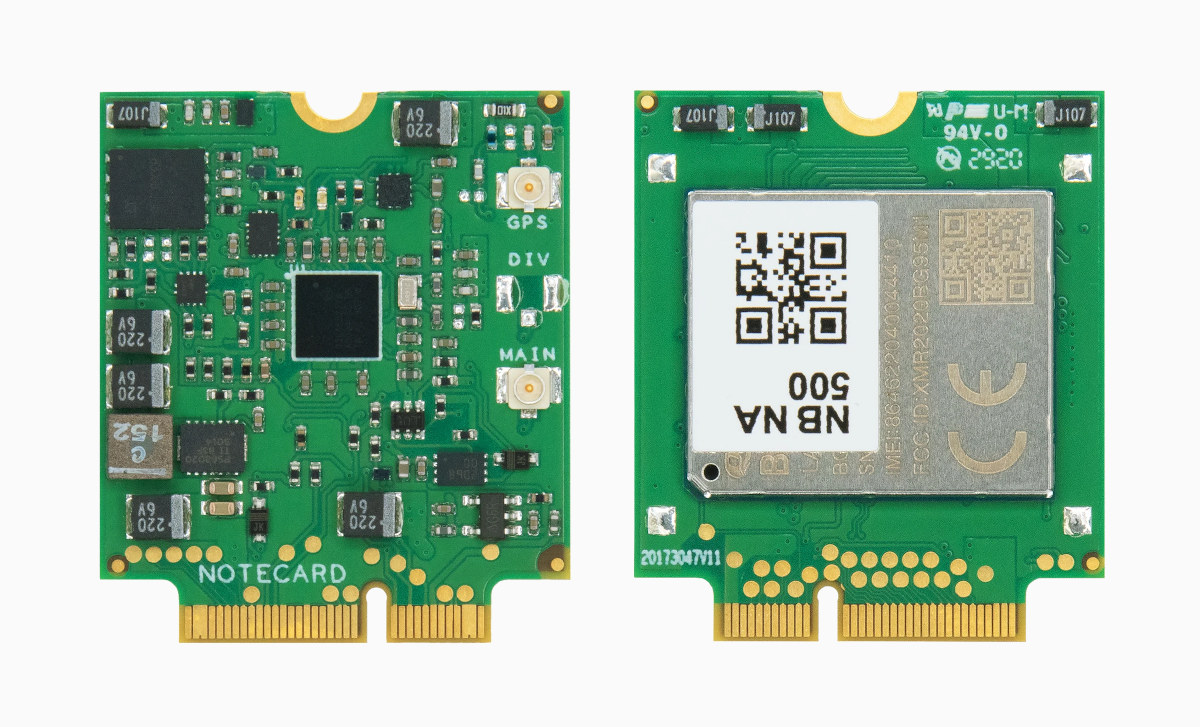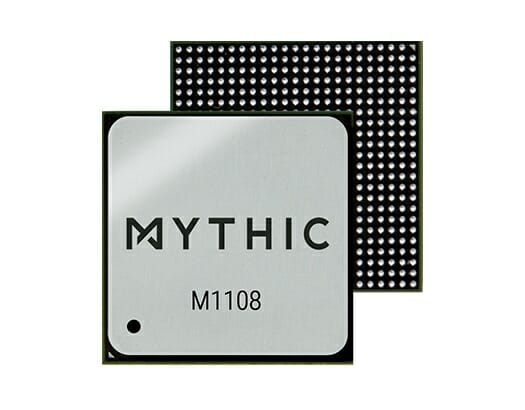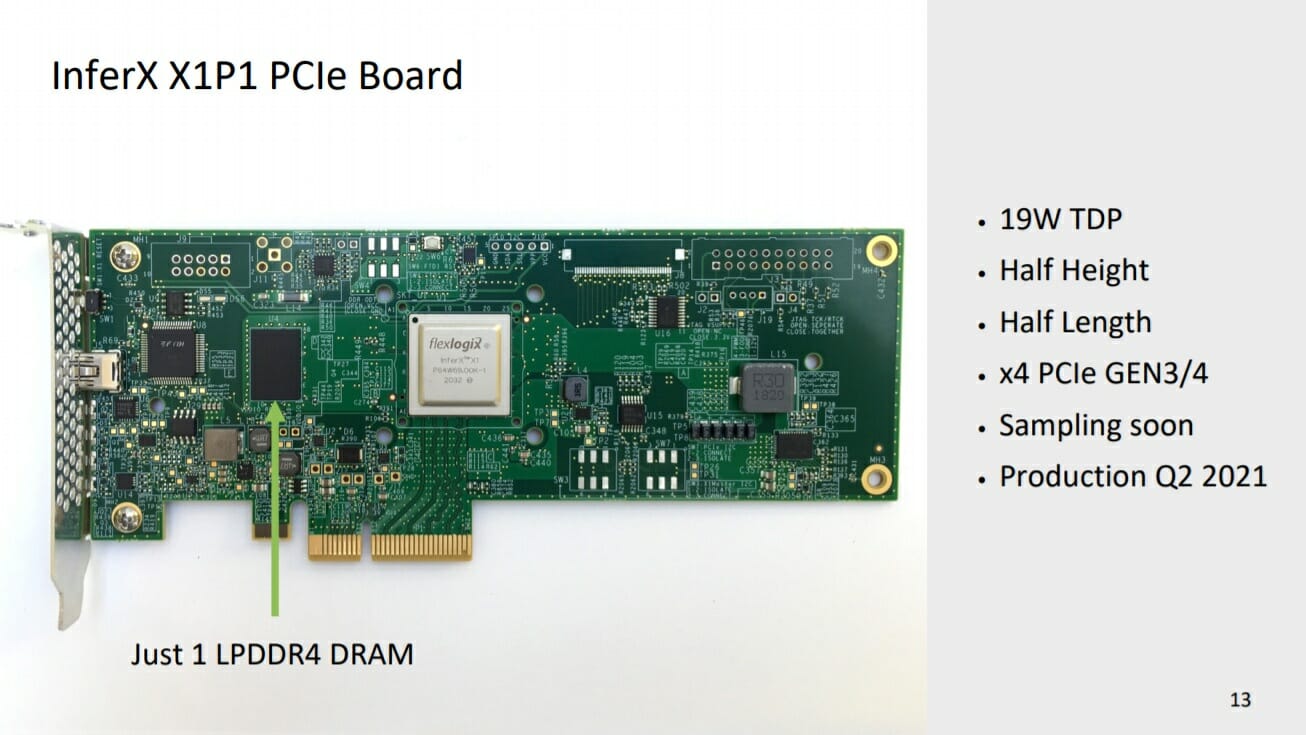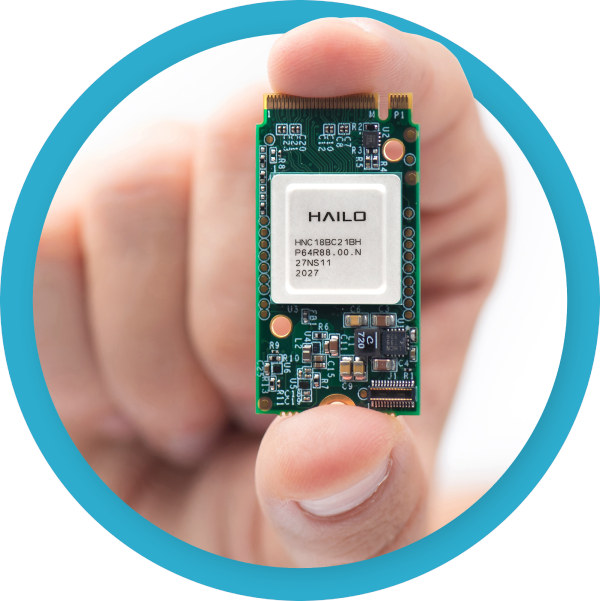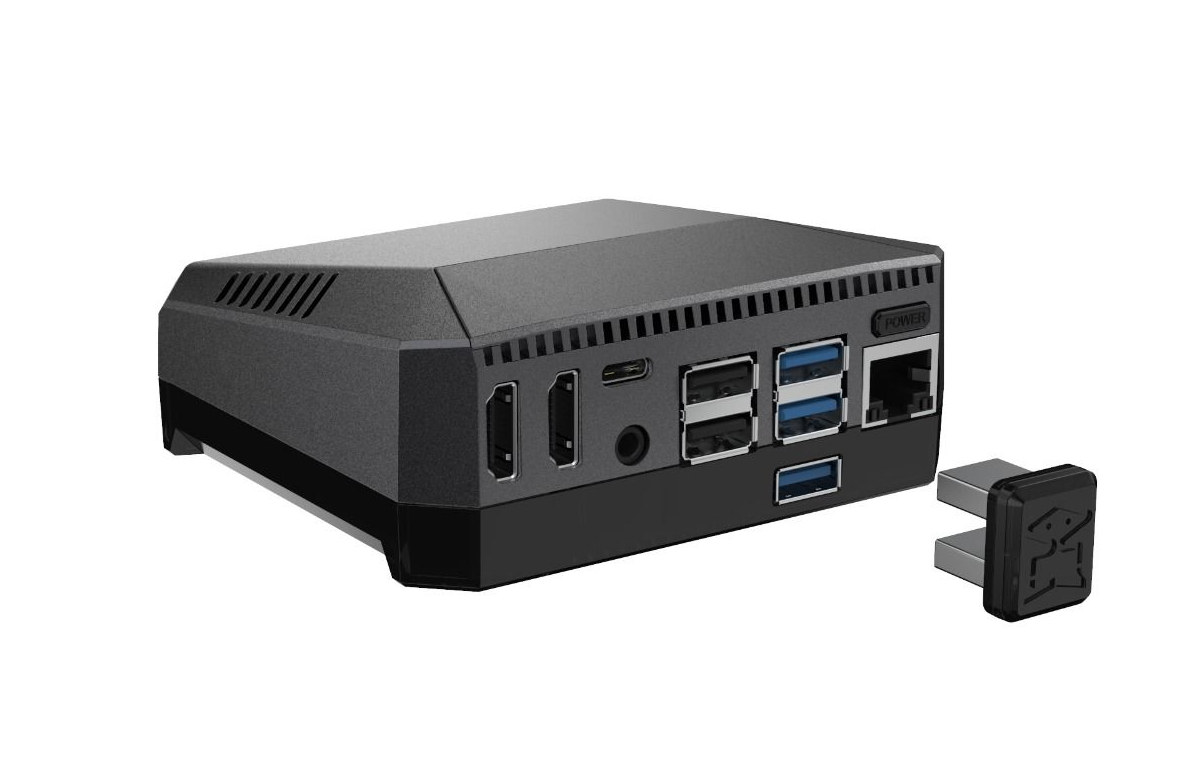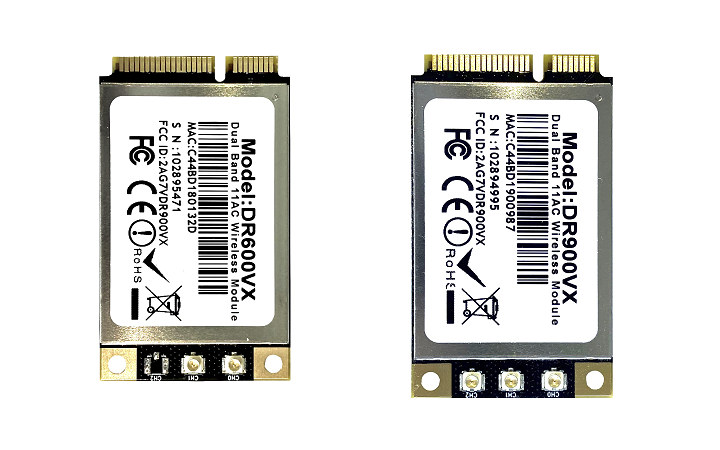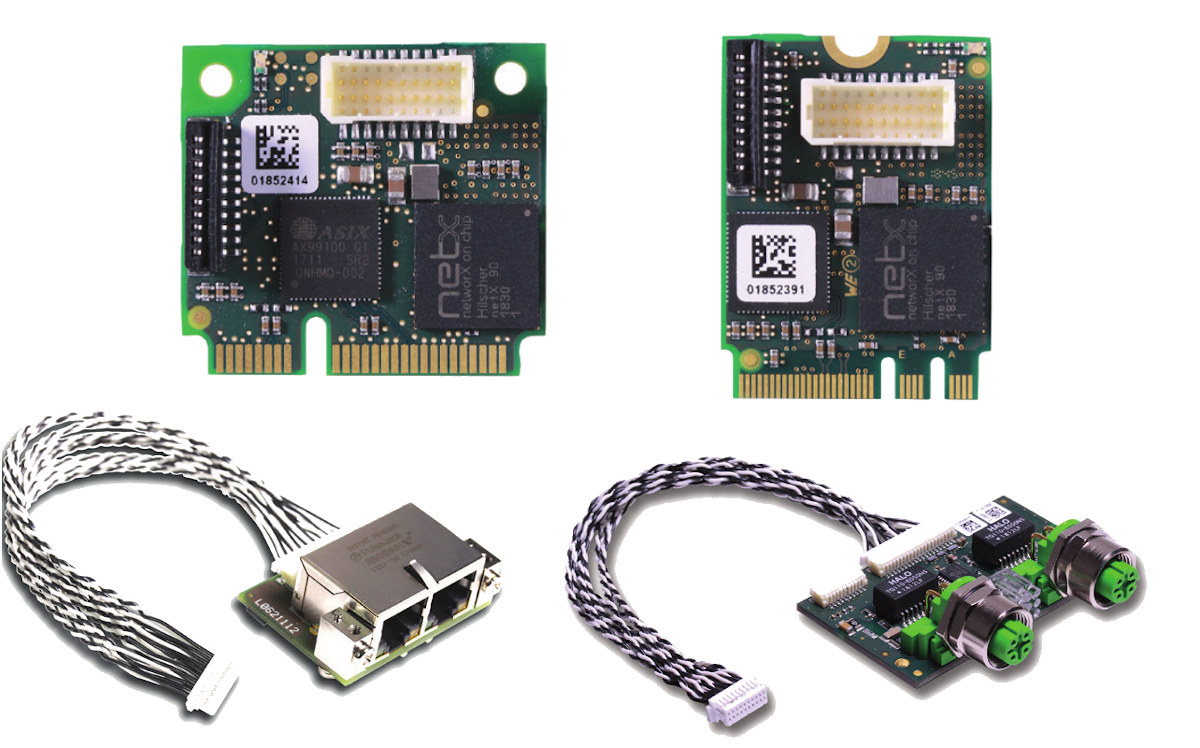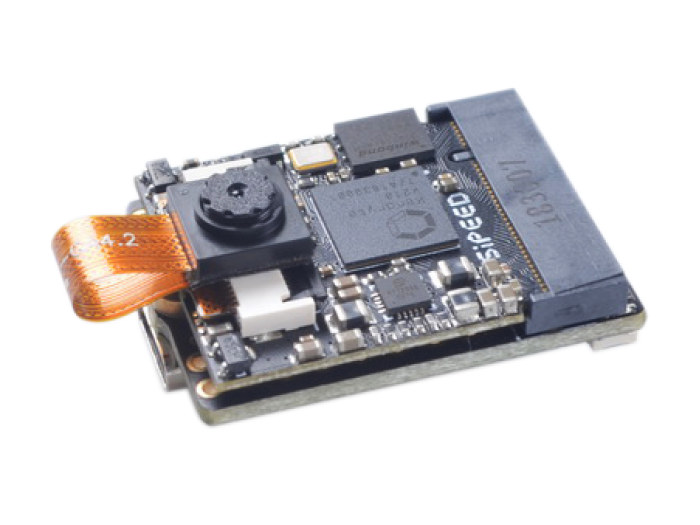If the IoT is ever going to take off, it needs low-cost hardware and connectivity. LoRaWAN is free, apart from the hardware costs, but for projects that need wider coverage and/or higher bitrate cellular connectivity is the way to go and we’ve seen in the past that Hologram offers a free developer SIM card for global IoT projects plus some low-cost cellular IoT plans, as well as 1CNE plans to offer a 10-year plan for 10 Euros. Blues Wireless has taken a different approach as they combine hardware and cellular connectivity with their Notecard LTE-IoT modems (LTE Cat 1/Cat M or NB-IoT) shipping for 10 years of connectivity for up to 500MB data. Notecard has four variants with the following key features and specifications: MCU – Arm Cortex-M4 MCU with 2MB flash Cellular connectivity NOTE-NBGL-500 – Narrowband Cat-M/NB-IoT/GPRS (Global) via Quectel BG95-M3 modem NOTE-NBNA-500 – Narrowband Cat-M/NB-IoT (North America) via […]
M1108 AI accelerator chip delivers up to 35 TOPS for high-end edge AI applications
Last week, Mythic announced a breakthrough with compute-in-memory technology based on a 40 nm process with what the company claims to be the industry’s first Analog Matrix Processor. The M1108 AMP AI accelerator chip targets high-end edge AI applications including smart home, AR/VR, drones, and is said to set a benchmark in the industry for high performance and low power in a single cost-effective device, also available in M.2 and PCIe form factors. The M1108 comes with an array of flash cells, ADCs, a 32-bit RISC-V nano-processor, a SIMD vector engine, SRAM, and a high-throughput Network-on-Chip (NOC) router. With 108 AMP tiles, the M1108 provides up to 35 Trillion-Operations-per-Second (TOPS) enabling ResNet-50 at up to 870 fps. This enables a power-efficient execution of complex AI models such as ResNet-50, YOLOv3, and OpenPose Body25. The industry leader NVIDIA also has a similar AI accelerator chip NVIDIA Xavier AGX which delivers up […]
InferX X1 SDK, PCIe and M.2 Boards for edge inference acceleration
Last week, Flex Logix announced the InferX X1 AI Inference Accelerator at Linley Fall Conference 2020. Today, they announced the InferX X1 SDK, PCIe board, and M.2 board. InferX X1 Edge Inference SDK The InferX Edge Inference SDK is simple and easy. The input to the compiler can be an open-source high-level, hardware-agnostic implementation of the neural network model that can be TensorFlow Lite or ONNX model. The compiler takes this model and looks for the available X1 resources and generates a binary executable file. This goes to the runtime which then takes the input stream, for example, a live feed from a camera. The user has to specify which compiler model, then the InferX X1 driver takes it and sends it to hardware. The binary file generated is fed to InferX X1 through the runtime. Then it takes the input data stream with a user-specified model and gives the […]
Hailo-8 M.2 and mini PCIe AI accelerator cards deliver up to 26 TOPS
[Update Sep 3, 2020: The post has been edited to correct Google Coral M.2 power consumption] If you were to add M.2 or mPCIe AI accelerator card to a computer or board, you’d mostly have the choice between Google Coral M.2 or mini PCIe card based on the 4TOPS Google Edge TPU, or one of AAEON AI Core cards based on Intel Movidius Myriad 2 (100 GOPS) or Myriad X (1 TOPS per chip). There are also some other cards like Kneron 520 powered M.2 or mPCIe cards, but I believe the Intel and Google cards are the most commonly used. If you ever need more performance, you’d have to connect cards with multiple Edge or Movidius accelerators or use one M.2 or mini PCIe card equipped with Halio-8 NPU delivering a whopping 26 TOPS on a single chip. Hailo-8 M.2 accelerator card key features and specifications: AI Processor – […]
Argon One M.2 Case for Raspberry Pi 4 Adds SATA Support, Full-Sized HDMI Ports
Yesterday, we noted that DeskPi Pro Raspberry Pi 4 case offered an interesting alternative to Argon One enclosure thanks to support for 2.5-inch SATA SSD/HDD, full-sized HDMI ports, and a PWM fan. What I did not know at the time was that Argon40 had worked on an improved version of their case with Argon One M.2 case also offering full-sized HDMI ports, support for M.2 SATA SSD storage, and a software-controlled fan. Argon One M.2 case key features and specifications: SBC – Compatible with Raspberry Pi 4 Storage – M.2 SATA SSD with Key-B or Key-B & M with UASP support on Raspberry Pi 4; Enabled via an adapter with two USB 3.0 port as shown in the render above Video & Audio Output – 2x Full-Sized HDMI ports plus AV port Expansion – Access to 40-pin GPIO header externally as in the original case Misc – Built-in IR receiver […]
Wallys WiFi 5 (802.11ac) mini PCIe cards deliver higher Tx power and performance (Sponsored)
Wallys is offering two mini PCIe cards to add WiFI 5 (802.11ac) to existing gateways, computers, or boards. Both 802.11ac modules are powered by Qualcomm Atheros QCA9880 chipset, with DR600VX mPCIe module delivering up to up to 867Mbps thanks to 2×2 MIMO, and DR900VX mPCIe module up to 1.3 Gbps using 3×3 MIMO technology. Both modules share most of the same key features & specifications: Chipset – Qualcomm Atheros QCA9880 wireless local area network (WLAN) system-on-chip (SoC) for 5 GHz 802.11ac or 2.4/5 GHz 802.11n WLAN WiFi 2.4GHz max 26dBm & 5GHz max 25dBm output power IEEE 802.11ac compliant & backward compatible with 802.11a/b/g/n IEEE 802.11d, e, h, i, k, r, v time stamp, and w standards DR600VX – 2×2 MIMO technology up to 867 Mbps DR900VX – 3×3 MIMO technology up to 1.3 Gbps Supports Spatial Multiplexing, Cyclic-Delay Diversity (CDD), Low-Density Parity Check (LDPC) Codes, Maximal Ratio Support for […]
M.2 and Half-size mPCIe Cards Support Real-Time Ethernet and FieldBus Networks
Hilscher cifX M.2 and half-size mini PCIe cards powered by the company’s NETX 90 network-on-chip multi-protocol Cortex-M4 SoC bring real-time Ethernet and FieldBus to compatible systems. The tiny cards are designed for PC-based devices such as IPC’s, HMI’s and robots, and support various firmware for PROFINET IO-Device, EtherNet/IP Adapter, EtherCAT Slave, or OpenModbus/TCP. The company claims its cifX M.2 (A+E key) and half-size mini PCIe cards are the smallest multiprotocol PC cards on the automation market with a size of 22×30 mm and 30×26.8 mm respectively. The cards also support extended temperature from -20°C to 70°C and offer one hardware platform for all real-time Ethernet slave protocols. Besides PROFINET IO-Device, EtherNet/IP Adapter, EtherCAT Slave, and OpenModbus/TCP, Hilscher will provide support for CC-Link IE Field Basic and Ethernet POWERLINK Slave in new firmware available in Q4 2020, and OPC UA and MQTT functionalities are planned for future releases. The cards are […]
Sipeed M1n is a $10 M.2 Module based on K210 RISC-V AI Processor
Kendryte K210 is a RISC-V processor with AI accelerator found in boards such as Maixduino, Grove AI HAT, or HuskyLens among others, and enabling low-cost, low power AI applications such as face detection or object recognition. You can now add Kendryte K210 AI accelerator to any board or computer with M.2 socket or [Update: the M.2 connector pinout is non-standard] a USB-C port thanks to Sipeed M1n M.2 module that also comes with an M.2 to USB-C adapter. Sipeed M1n specifications: SoC – Kendryte K210 dual-core 64-bit RISC-V processor @ up to 400MHz with FPU, Neural-network Processing Unit (NPU), audio processor, built-in 6MB SRAM memory for CPU, and 2MB AI SRAM Storage – 128Mbit SPI flash Camera – 24-pin connector for DVP camera (OV0328 camera module provided as part of the kit) Host Interface – M.2 socket with some IOs and JTAG interface, accessible via Maix Nano M.2 to USB-C […]


